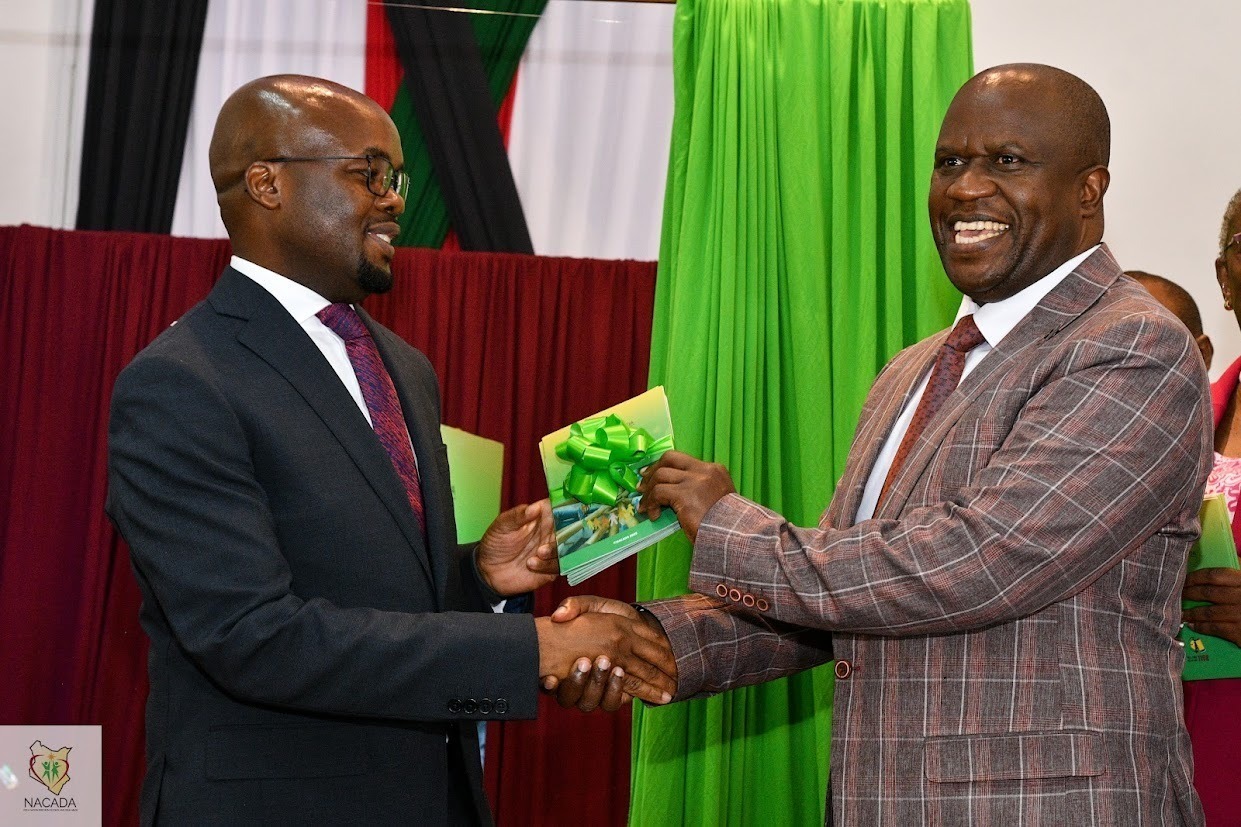In a landmark move to address the escalating crisis of alcohol and drug abuse, the Kenyan government, through the National Authority for the Campaign Against Alcohol and Drug Abuse (NACADA), on Thursday, April 24 launched the Community-Based Rehabilitation Framework for Substance Use Disorders (SUDs).
The framework, unveiled at the Kenya Institute of Curriculum Development (KICD), marks a pivotal shift from punitive measures to a holistic, community-driven approach in combating addiction.
Presiding over the launch, Principal Secretary Dr. Raymond Omollo emphasized the devastating impact of substance abuse on Kenya’s security and social fabric.
“Drug and alcohol abuse are fueling crime, domestic violence, extremism, and lost potential among our youth,” he stated. “We cannot police our way out of this crisis—we must address its root causes through prevention, treatment, and reintegration.”
A multifaceted threat to national stability
Dr. Omollo highlighted alarming trends linking substance abuse to insecurity:
- Rising crime: Addicts resorting to theft and violence to sustain their habits.
- Family breakdowns: Illicit alcohol contributing to domestic violence and economic decline in rural areas.
- Terrorist recruitment: Extremist groups exploiting vulnerable, drug-dependent youth.
- Prison overcrowding: Minor offenders hardened into repeat criminals due to lack of rehabilitation.
“This is not just a health issue—it is a national security threat,” he declared.
A new path forward: Community-led solutions
The framework, developed by NACADA in collaboration with government agencies, healthcare providers, and civil society, prioritizes:
- Prevention: School-based anti-drug programs and public awareness campaigns.
- Accessible Treatment: Expansion of affordable, culturally sensitive rehab centers nationwide.
- Justice Reform: Diverting non-violent offenders to rehabilitation instead of prison.
- Community Ownership: Empowering local leaders, Nyumba Kumi initiatives, and grassroots organizations to identify and address drug hotspots.
NACADA CEO Dr. Anthony Omerikwa underscored the framework’s evidence-based strategies, including early detection, stigma reduction, and strengthened referral systems.
“This is a call to action for all stakeholders—from health workers to village elders—to unite in saving our communities,” he said.
A unified call to action
The launch concluded with a rallying cry for nationwide implementation.
“From Kilifi to Nairobi, every community must benefit from this framework,” urged Dr. Omollo. “Together, we can reclaim our youth, restore security, and rebuild lives.”











